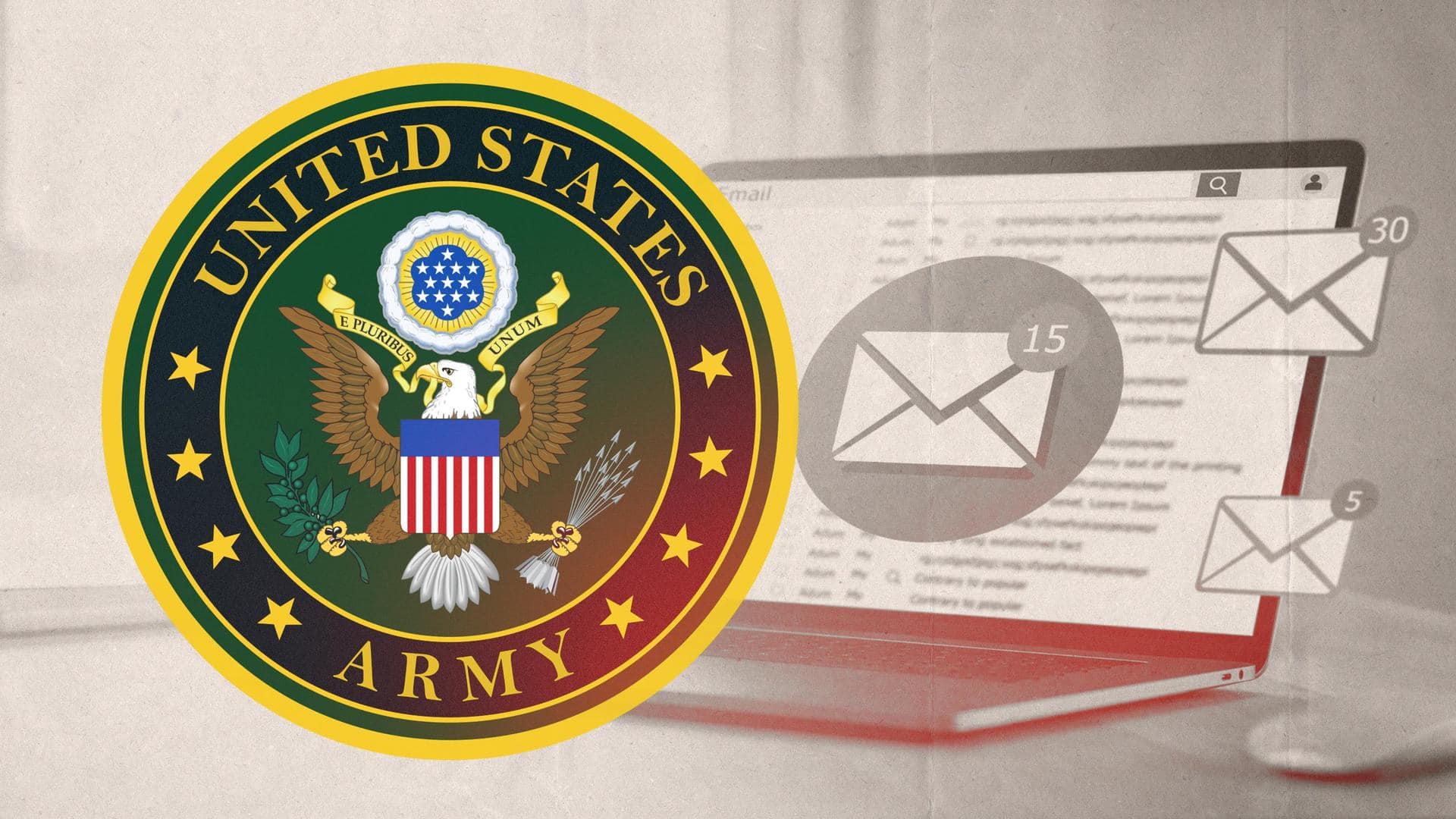
How this email typo put US military secrets at risk
What's the story
Sensitive information associated with the US military has reportedly been sent to Mali for over 10 years. Suspicious, isn't it? According to Financial Times, a one-letter typo is behind this problem, which arises from people frequently appending the wrong domain to the recipients' email addresses. Notably, the US military's domain is .MIL, while Mali's country domain is .ML.
Context
Why does this story matter?
US military secrets find their way into the public eye very rarely. More often than not, whistleblowers are behind such leaks. Therefore, this particular case is peculiar. For starters, it has reportedly been going on unhindered for a decade. Shockingly, the US military or the Department of Defense (DoD) hasn't managed to put a stop to this.
Leak
Dutch contractor in charge of Mali's domain noticed it
The man who brought the "typo leak" to the fore is Johannes Zuurbier, a Dutch contractor in charge of Mali's .ML domain. He began noticing the problem after seeing multiple requests for nonexistent domains like army.ml and navy.ml. Moreover, Zuurbeir set up a system to catch such emails. Financial Times reported that the system was soon overwhelmed by the number of misdirected emails.
Content
Emails not marked classified but contained sensitive information
Such emails included medical records, identity documents, diplomatic letters, photos of bases, maps of installations, navy crew lists, naval inspection reports, tax and financial records, criminal complaints against personnel, internal investigations into bullying, and bookings, among others. However, none of the messages were reportedly marked classified. The emails were mainly sent by military staff members, US intelligence, private contractors, travel agents, and others.
Informed
US government did not take Zuurbier's warnings seriously
Zuurbeir told Financial Times he made multiple attempts to warn the US government about the "typo leak." According to him, despite his attempts, the government failed to take it seriously. He has collected 117,000 misdirected emails since January alone. In a letter to the US in early July, he wrote, "The risk is real and could be exploited by adversaries of the US."
The problem
Mali is close to Russia
It is now time for the US government to act, especially because Zuurbier won't be able to intercept the emails anymore. His contract with the Mali government will end on Monday, after which the country's authorities will have access to these emails. Interestingly, the West African nation has gotten closer to Russia recently, and Russian forces have established a presence there as well.
Aware
DoD has been aware of issue for some time
Meanwhile, Tim Gorman, a Pentagon spokesperson, said, "The Department of Defense (DoD) is aware of this issue and takes all unauthorized disclosures of Controlled National Security Information or Controlled Unclassified Information seriously." He said emails sent from .MIL to .ML "are blocked," and the senders are also notified they must validate the email address of recipients.